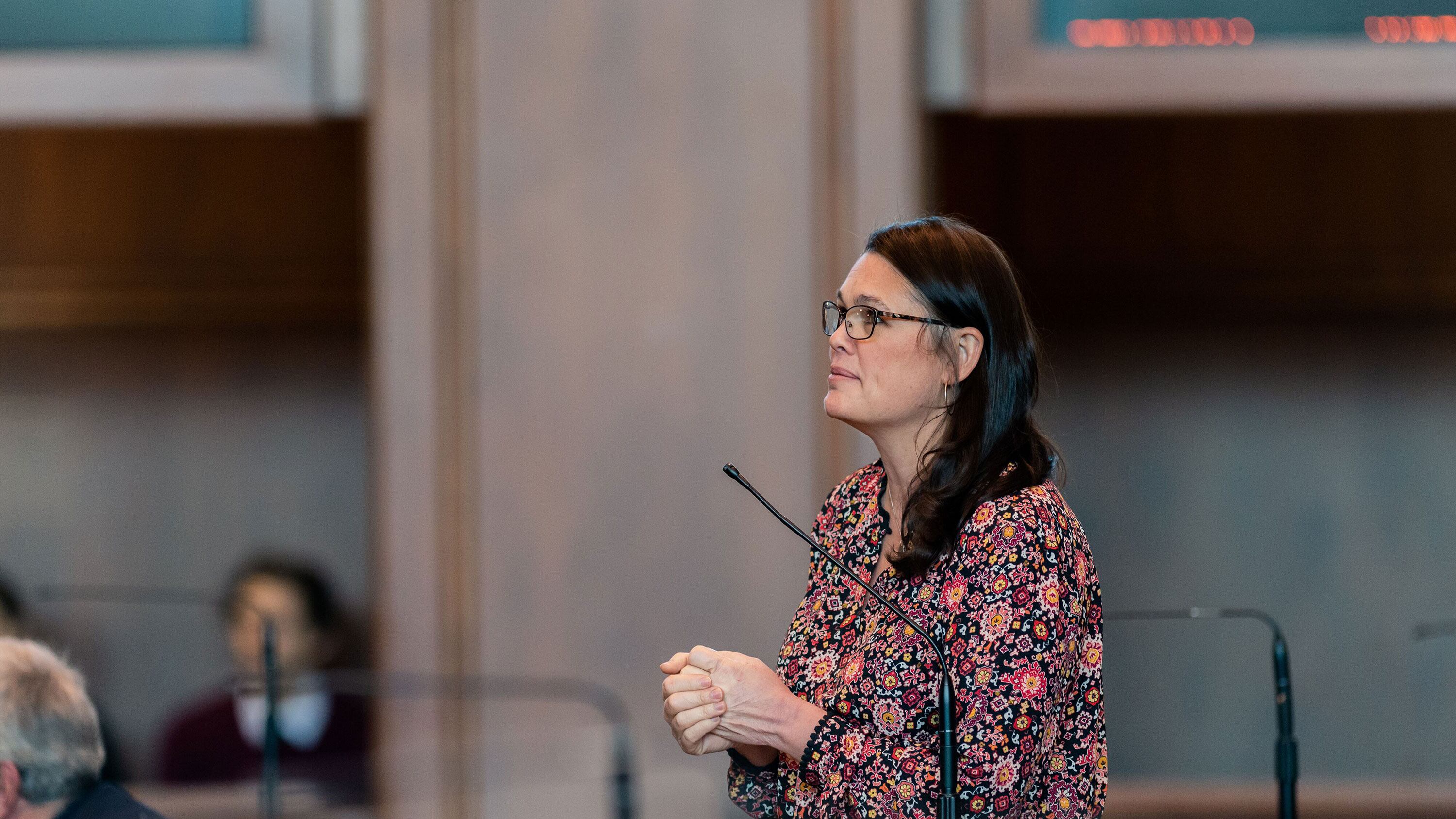This story was produced by the Oregon Journalism Project, a nonprofit newsroom covering the state.
Gov. Tina Kotek issued three vetoes on June 24, all for bills related to child welfare and the Oregon Department of Human Services.
Kotek has not often used her veto pen because she’s generally in sync with the Democratic supermajorities in both chambers of the Legislature. But one of the governor’s priority bills—House Bill 3835—put her at odds with the chairs of the two policy committees that oversee child welfare.
Capitol insiders tell the Oregon Journalism Project they think the vetoes are a response to two key lawmakers’ opposition to one of Kotek’s top priorities, although nobody will say so on the record.
HB 3835, which Kotek testified on earlier this session, proposed dialing back some of the reforms lawmakers have passed over the past decade in response to shortcomings in the state’s foster care and child welfare system.
Kotek and her allies, including Dr. Ajit Jetmalani, director of Child & Adolescent Psychiatry at Oregon Health & Science University, argued that new laws went too far and made it difficult for treatment providers to attract and retain workers. They also sought to allow DHS to return to the practice of sending children out of state for treatment.
But Sen. Sara Gelser Blouin (D-Corvallis), chair of the Senate Committee on Human Services; Rep. Annessa Hartman (D-Gladstone), chair of the House Committee on Early Childhood and Human Services; and their allies at Disability Rights Oregon opposed the bill, arguing that it would put children at risk by loosening protections.
The bill got hearings before Hartman’s committee and House Rules, but despite the governor’s unusual step of testifying in favor of it personally, the bill stalled in the Joint Ways and Means Committee, where it will likely die.
That’s the backdrop for Kotek’s veto of House Bill 3795, whose chief sponsor was Hartman. That bill would require DHS to report to the Legislature on tax preparation services and, more importantly, would change the trigger for activating DHS’s Child Incident Review team.
In her veto letter, Kotek said the latter requirement would further complicate the department’s work without clear benefit.
Kotek made similar arguments in vetoing Senate Bill 736 (which passed both chambers unanimously) and Senate Bill 875, which modified the Oregon Foster Children’s Bill of Rights and Sibling Bill of Rights in ways Kotek said “exemplify the risks of fragmented policymaking.”
The Senate made the rare move of overriding Kotek’s veto of SB 875, as Oregon Public Broadcasting first reported, but rather than joining in that override, the House voted to table the bill. The Senate also took up SB 736, but rather than override it, voted instead to table that measure as well. That leaves both bills in limbo—an override for either must get affirmative votes in both chambers.
Sen. Gelser Blouin declined to speculate why Kotek issued the vetoes. “I can’t speak for somebody else,” she says. Hartman could not immediately be reached for comment.
Kotek spokeswoman Elisabeth Shepard denies the governor nixed the bills in retribution for the failure of her priority bill.
“The governor’s rationale for the vetoes are self-evident in the letters,” Shepard said in an email.

